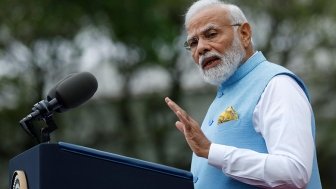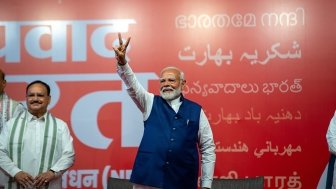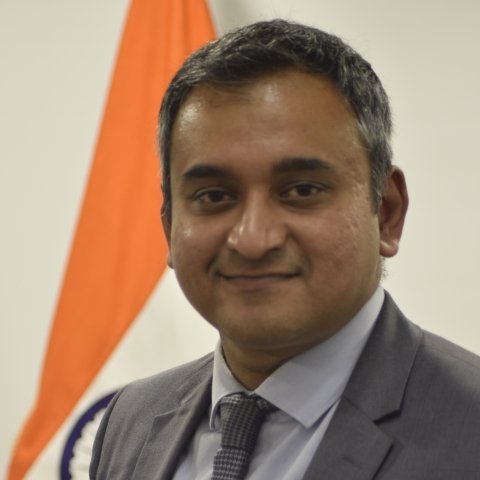Venkateswaran Lokanathan
Global Fellow
Professional Affiliation
Former Assistant Director, National Security Council Secretariat, Government of India
Expert Bio
Dr. Venkateswaran Lokanathan has two decades of professional experience across government relations, stakeholder management, public engagement and research and development. Dr. Lokanathan has contributed to official government policy with other countries; organized inter-ministerial coordination meetings of government stakeholders; interfaced with law enforcement agencies; engaged with think tanks, civil society and academia on security and foreign policy issues; and worked in multiple private and government universities and leading Indian and International research institutions. He has worked in the National Security Council Secretariat under the Prime Minister’s Office, Govt of India (2014- 2020); Rashtriya Raksha University, under the Ministry of Home Affairs, Govt of India (2021-2024); Manipal University (2010-2012) and St. Joseph’s University (2012-2014). Dr. Lokanathan was a Kodikara Research Fellow, Regional Centre for Strategic Studies, Colombo (2013). He has over 60 written publications and presentations in nearly 40 international and national conferences.
Expertise
- India’s National Security Management
- India-US Security Relations
- India-China Security Relations
Wilson Center Project
National Security Architectures: A Comparative Analysis of India and the United States
Project Summary
India and the United States have a number of strong complementarities including their historical struggle for independence, democratic political systems, cultural diversities, secular ethos and more recently growing economic, defense cooperation and people to people linkages. They are, hence, expected to be natural allies. Over the last two decades, both sides have strengthened cooperation by successfully putting aside, as PM Modi remarked in his address to the US Congress, “hesitations of history”. The NSSP 2001, Nuclear Deal 2005, Strategic Partnership 2010 and Defense Cooperation including the signing of GSOMIA 2002, LEMOA 2016, COMCASA 2018 and India’s purchase of key defense hardware from the US, which was valued at US$ 0 in 2008 to an estimated over $18 billion in 2019, are significant pointers to the growing strategic security cooperation between both countries. Despite the meteoric rise of China in the last three decades, the United States continues to be the leading super power in the World with its unmatched military superiority, economic advance, technological progress and financial resources. Simultaneously, India is an established regional power which is gradually emerging on the global stage by strengthening its accrued linkages, particularly in the developing world, through its historical leadership of the nonaligned movement, soft power influence, hardworking skilled diaspora, past civilizational connect, rich heritage and diverse culture. It also presents the attraction of a huge economic market and a robust rule of law that facilitates even foreign investors a platform for legal recourse unlike China. The capacity of the United States to showcase hard power in finding resolutions to global challenges and its leadership particularly of the developed world finds an effective complementarity in the popularity that India enjoys through its soft power and ability to use diplomacy instead of force to avert crises particularly in the developing world. The United States could benefit from India’s diplomacy, soft power and strong linkages particularly in the developing world even as India could benefit from the United States hard power capabilities and past experiences at global leadership. As an emerging power, India is keen to imbibe the best practices of the United States, an established power, for strengthening its National Security Architecture and Strategy. A Global Strategic and Security Partnership (GSSP) between India and the United States could be explored within defined boundaries. This could benefit both countries and positively impact the International Security Environment.
Major Publications
- “National Security Management of India”, Prof (Dr) Bimal N. Patel, ed., (2023) Review of the India’s National Security Act, Gujarat: Rashtriya Raksha University Press
- “The New China Challenge Stems from Beijing’s Old Ambitions,” National Interest, December 28, 2020
- “Pakistan’s Kashmir Obsession: An Assessment,” Chanakya Forum, November 6, 2020
- “China's Strategy on the Jammu and Kashmir 'Situation," Usanas Foundation, November 28, 2020
- “China’s belt and road initiative: Implications in Africa,” Observer Research Foundation, August 2020
- “US Policy towards Afghanistan: Options for India”, Arpita Basu Roy, ed., (2014) Bonn’01 To Bonn’11: Debating Afghanistan’s Political Future, pp: 129-146, Kolkata: Maulana Abul Kalam Azad Institute of Asian Studies, KW Publications,
- “US Rebalance to Asia: Implications for Indo-US Strategic Partnership”, Josukutty, ed., (2014) Asian Re-balancing and the Changing Dimensions of Indo-US Relations, pp: 65-84, New Delhi: New Century Publications
Previous Terms
July 25, 2020 - July 31, 2022
Insight & Analysis by Venkateswaran Lokanathan
- Blog post
Modi 3.0: India’s New Governing Coalition and Implications for Foreign Policy and National Security

- Video
- Elections
Unpacking India’s Elections: Implications and Next Steps

- Past event
- Terrorism
In Case You Missed It—Hindsight Up Front: Implications of Afghanistan Withdrawal for South Asia

- Past event
- Conflict Resolution and Peacebuilding
Hindsight Up Front: Implications of Afghanistan Withdrawal for South Asia


